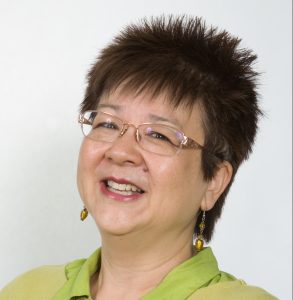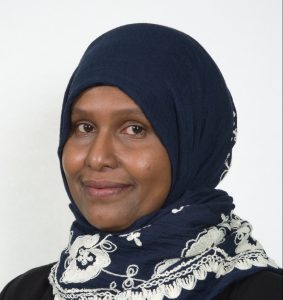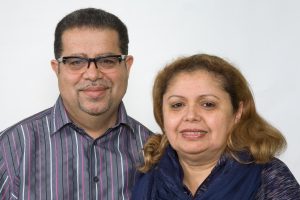Become a foster carer
We are a non-profit-making agency.
Caring for children and young people who have had a difficult start in life is very important. We want to make sure that our foster carers have a good understanding of what is involved and are committed to making things better for our children.
You can contact us by phone or email and we will answer any initial queries you have and send you an information pack. Or if you would like to register your interest online, you can complete the enquiry form and we will be in touch with you on the next working day.
We hold monthly information sessions which are a good way to find out what’s involved and how fostering works. The sessions are friendly and informal and you will get the chance to meet the fostering team and most importantly hear our foster carers talking about their experiences.
One of the team would then come and visit you in your own home so we can find out a bit more about you and answer any questions you may have for us.
To make sure our foster carers are well prepared, we have an initial preparation training course for people new to fostering in Ealing. Most people who attend this course really enjoy it and feel that it helps to give them the skills they need to foster.
To make sure that children are safe, we need to take up various checks on anyone interested in fostering. We also carry out an assessment so we understand someone’s strengths and get to know who they are and how their family works. The assessment helps us to get to know someone so we know what support they are likely to need and what sort of child they could look after best.
Once we have completed the assessment, carers are approved by a panel of people who have a good understanding of fostering and the needs of the children and young people we need carers for.

The role of a foster carer
Sadly not all children are able to live with their own families. When families are in a crisis or struggling with issues such as mental health or substance misuse, they may not be able to provide their children with the support and stability they need. When it is not possible to support the family at home the children may need to be fostered to make sure they are safe and get the proper care they need.
What do foster carers do?
Foster carers provide the same care as any parent would. They make sure that the children are healthy, well fed, clothed properly and can experience a stable family life. For older children foster carers take them to school (usually primary age children), help them with homework and give them opportunities to follow their interests. For preschool children foster carers provide the support to make sure they are developing properly and reaching their milestones. Children who may have had a difficult start in life are likely to need some extra help and understanding, so foster carers need to be patient, tolerant and nurturing.
Foster carers become very important people in a child’s life and their feedback and input in meetings to help plan for child’s future are key.
Foster carers do all the things a parent would, but because they are looking after other people’s children it is more formal and becomes a professional role.
See our Foster Carers’ Charter for details of our commitment to working together.
Who can Foster ?
All sorts of people make good foster carers.
The main requirements are to care about children and speak enough English to be able to communicate with the people involved in a child’s life.
Foster carers come from many different backgrounds:
- All ages (but must be over 21)
- Privately rent, live in social housing or own their own homes
- Work or claim benefits
- Heterosexual or gay
- Have their own children or don’t have children
- May be religious, others are not
- Married, separated or divorced, living with someone or on their own
You don’t need a spare bedroom to be able to foster. We currently need more foster carers to look after babies, who may be able to sleep in your bedroom if you have space for a cot.
Being a foster carer is about being flexible and open minded, enjoying a challenge, enjoying learning new things and wanting to make a real difference to the lives of children who can’t be with their birth families.
If you’re not sure about whether you could foster, have a chat with us first – don’t rule yourself out. Discover what you’re truly capable of.

Training & Support
As a foster carer for Ealing there will always be someone there to support you. We have a dedicated fostering support workers and an out-of-hours service, which you can rely on 24 hours a day 365 days a year.
You don’t need any formal qualifications to be a foster carer. We provide a comprehensive training package, from pre-approval training to specialist courses, which includes the opportunity to gain a level three diploma in child care. Our courses are timed to suit you around school pick-ups, drop-offs, evenings and weekends.
Our training package includes a whole range of different courses from practical courses such as first aid and health safety awareness to understanding child development and managing behaviour. We have training for whatever age child you want to look after form pre-school to working with teenagers.
We have recently added an exciting new program called, ‘Nurturing attachments’ which gives our carers an overview of attachment theory. This in-depth course helps carers to really understand the effects of the experiences children have had. It teaches carers how to build relationships with children and explore different approaches to managing and reacting to behaviour.
Support groups
We hold monthly support groups where you can meet other carers, share ideas, experiences and make new friends. We have also recently set up a men’s support group.
We also have a support group for people before they are approved, to make sure they feel supported throughout the approval process.
Buddy Scheme
Once you are approved we’ll link you up with an experienced carer who you can call on for informal advice and support.
Foster carer preparation groups
Everyone interested in becoming a foster carer will need to attend our preparation training course. This course covers all the basics you would need to know to feel confident to foster. Most people who attend really enjoy the course and get a lot out of it even if they then decide not to go any further. The course is held in Ealing and is by invitation only following the initial visit to your home.
We usually hold four initial training groups a year. The course is over four days – a Thursday evening 6-9pm, Friday and Saturday 10am-4pm and Monday 6-9pm.
Meet our carers
Our carers are from a range of different backgrounds and all care about children and want to make a difference.
Hear from some of our foster carers.

Ruth is one of our newer carers and was approved in August 2015. Ruth had always wanted to foster but knew it had to be the right time to make it work. Ruth and her partner Abe wanted to give back and help children. Fostering for Ruth was all about making a difference and giving children the opportunity they really deserve.
Ruth started off as a short-term carer but got on so well that she put herself forward to be a long-term carer of one of the children placed with her. Although Ruth sees fostering as a way to give something back, she also very much sees fostering as a two-way process, with the children helping her to learn more about relationships and communication.
Ruth says “Fostering is all about making sure the children’s needs are attended to as you would do your own child, so they can start to flourish and meet their full potential.

Fostering was always something Ruqaya wanted to do as she loves caring for people. Ruqaya came to live in the UK in 2000 and felt that she got so much help and support from the community that she wanted to give something back as a token of her appreciation.
Ruqaya already had a lot of child care experience having four children of her own and being a grandmother. She has now looked after five more since she started fostering three years ago. Ruqaya started looking after children between the ages of 0-10 years old, which she felt worked best for her, though recently took on a teenager and surprised herself with what she found she was capable of.
Ruqaya sums up her feelings about fostering by saying: “Fostering means family to me. It is about being part of a family where people love and care for you. I find it very rewarding in every aspect.”

Becoming foster carers was something natural for Maria and Joel, having worked with street children in their native homeland Brazil and then having worked for a children’s charity in Spain. They were encouraged to foster by a friend who saw a fostering advertisement in a magazine and thought they would be the perfect candidates.
Having been foster carers for nine years their two sons have grown up in a fostering family and now aged 17 and 22 are a support to their parents and are great role models to the foster children.
Maria and Joel have fostered eight children and are now specialist carers. As specialist carers they have taken on a young girl who although presented them with plenty of challenges they decided to keep on a long term basis.
Their contribution to fostering was acknowledged in 2014 when they became Ealing foster carers of the year.
In her own words Maria said “Fostering means a lot to us. It can be a hard job but we can give the children an opportunity to receive love and care. It’s a beautiful and rewarding vocation.”
Types of Fostering
There are different types of fostering depending on the needs of the children and young people.
Short term fostering could be for a few days in an emergency or up to 18 months whilst the child’s future is being planned. This is how most children come into care.
It is usually better to start off as a short term carer, so you have a good understanding of the needs of the children and feel ready to make a long -term commitment.
If you are interested in helping a child or young person coming to the UK as a refugee, one way to get involved is to become a foster carer.
You will need to go through the usual process to become a foster carer. Find out how to become a foster carer.
You can speak to us about fostering and how you may be able to foster a refugee child or young people arriving in the borough.
The largest group of children that need fostering are teenagers. Teenagers can be a challenge, and often get bad press but actually being a teenager isn’t always easy, remember?
Foster carers looking after teenagers can make a big difference to a young person’s life, being there throughout the highs and the lows and providing the stability and patience they need at a crucial time in their life. Looking after teenagers gives you the chance to be there when it matters the most, nothing worth doing has ever been easy.
If you are interested in helping a child or young person coming to the UK as a refugee, one way to get involved is to become a foster carer.
You will need to go through the usual process to become a foster carer. Find out how to become a foster carer.
You can speak to us about fostering and how you may be able to foster a refugee child or young people arriving in the borough.
Private fostering is different from what is usually known as general foster care. It is an arrangement whereby a parent (or guardian) arranges for their child or children to live with someone who is not a close relative such as a step-parent, grandparent, brother, sister, uncle or aunt for 28 days or more. For more information go to the private fostering page.


